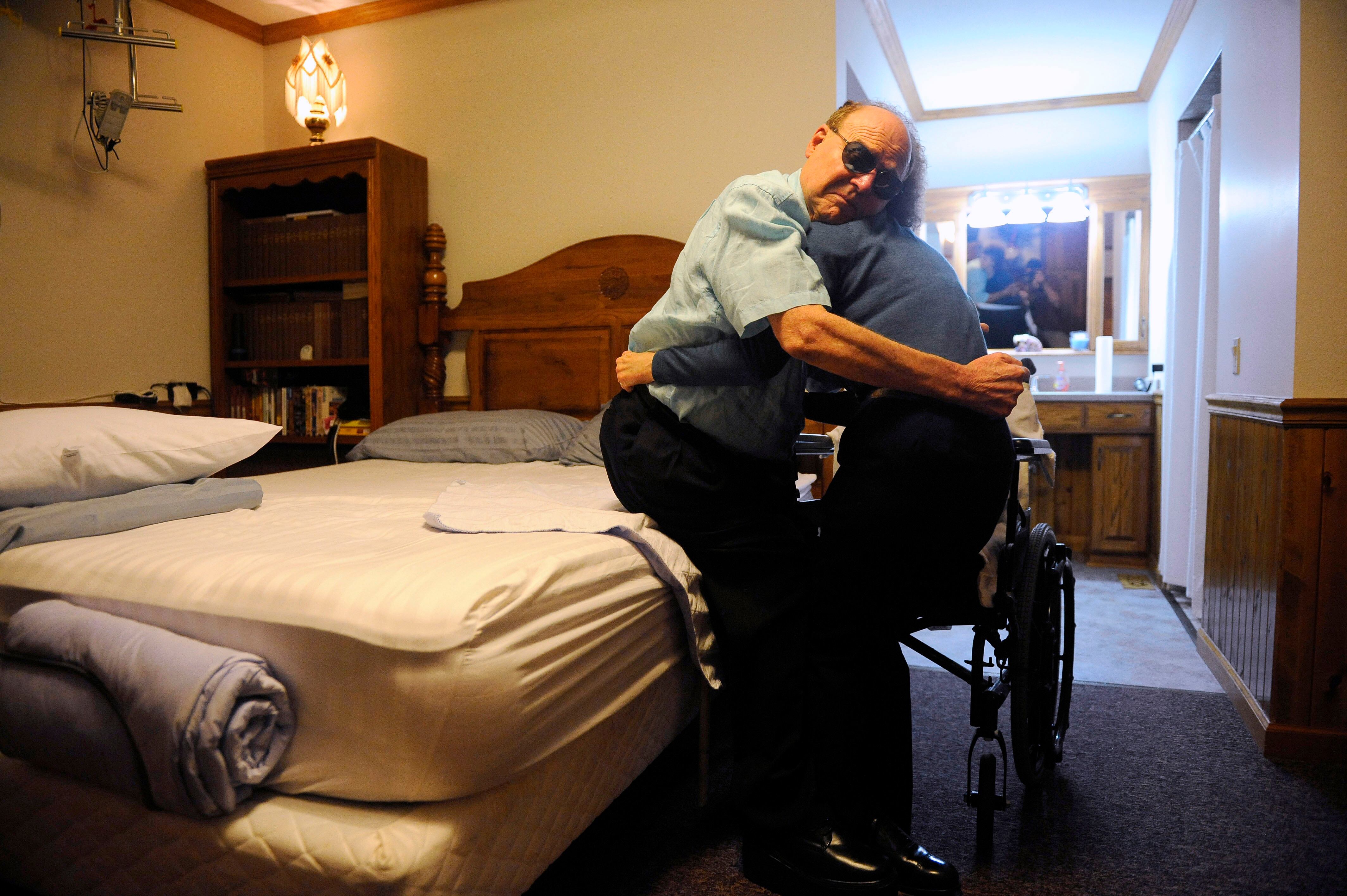Veterans Affairs officials on Thursday unveiled plans to expand caregiver support services to thousands more families in coming years, while also easing program rules to minimize disruptions for families already receiving those benefits.
The move comes more than two years after department leaders suspended their previous efforts to reform the Program of Comprehensive Assistance for Family Caregivers amid criticism from advocates and lawmakers that the changes were hurting veterans instead of helping them.
Under proposed changes, to be posted on the Federal Register for public comment on Friday, officials would expand eligibility in the program to include veterans who meet the standard for “individual unemployability” benefits, a lesser bar than the previous “serious injury” requirement for enrollment.
Other details on eligibility would be determined after a public comment period, which lasts 60 days. That could complicate the process, given the change in presidential administrations scheduled for January.
RELATED

The announced reforms would also cut back on how often families would have their eligibility reassessed, scheduling those checks for not more than once every two years.
And it would ensure that any new discharges from the program will not take place until late 2026 at the earliest, and possibly even later. VA officials had previously announced that no legacy participants of the program would be discharged before September 2025.
“We understand the critical role that family caregivers play in supporting the health and wellbeing of veterans, which is why VA is committed to ensuring our programs are meeting the needs of veterans and their caregivers,” VA Secretary Denis McDonough said in a statement announcing the proposals.
“These proposed changes would expand the program to tens of thousands of veterans and their family caregivers — ensuring we can provide these caregivers with the respite care, education, support, and resources they need to care for their veteran.”
Currently, nearly 90,000 caregivers are enrolled in either the PCAFC or the Program of General Caregiver Support Services. The latter provides access to peer mentoring, skills training and other assistance programs for individuals caring for infirm veterans.
The PCAFC provides even more support, including stipend of up to $3,000 a month. Officials expect thousands more to be eligible in coming years, but could not provide an exact estimate until the eligibility guidelines are finalized.
Dr. Colleen Richardson, executive director of the Caregiver Support Program, acknowledged missteps with past reform efforts and said officials are focused on working closely with advocates and program participants on changes moving ahead.
“We didn’t get it right that first time,” she said. “Now that we’ve had four years worth of data to look at, we’ve heard from our community, we’ve heard from our veterans service organizations. We’ve evaluated over 200,000 applications in the last couple years. So, we have a really good idea of what we’re looking for now.”
Richardson could not provide a timeline for when the new caregiver rules may be enacted. VA officials will have to review and respond to public comments starting in February, and submit adjustments to their plan after that.
President-elect Donald Trump will be in office by then, and his new VA leadership team may opt for a different approach. VA officials said it was important to move ahead with the process now, despite the transition.
Separately, Congress is considering its own legislative package regarding veterans’ caregivers, to include an expansion of access to home-based and community-based services for infirm veterans.
Lawmakers hope to advance that bill out of the Senate by the end of the year.
Leo covers Congress, Veterans Affairs and the White House for Military Times. He has covered Washington, D.C. since 2004, focusing on military personnel and veterans policies. His work has earned numerous honors, including a 2009 Polk award, a 2010 National Headliner Award, the IAVA Leadership in Journalism award and the VFW News Media award.





